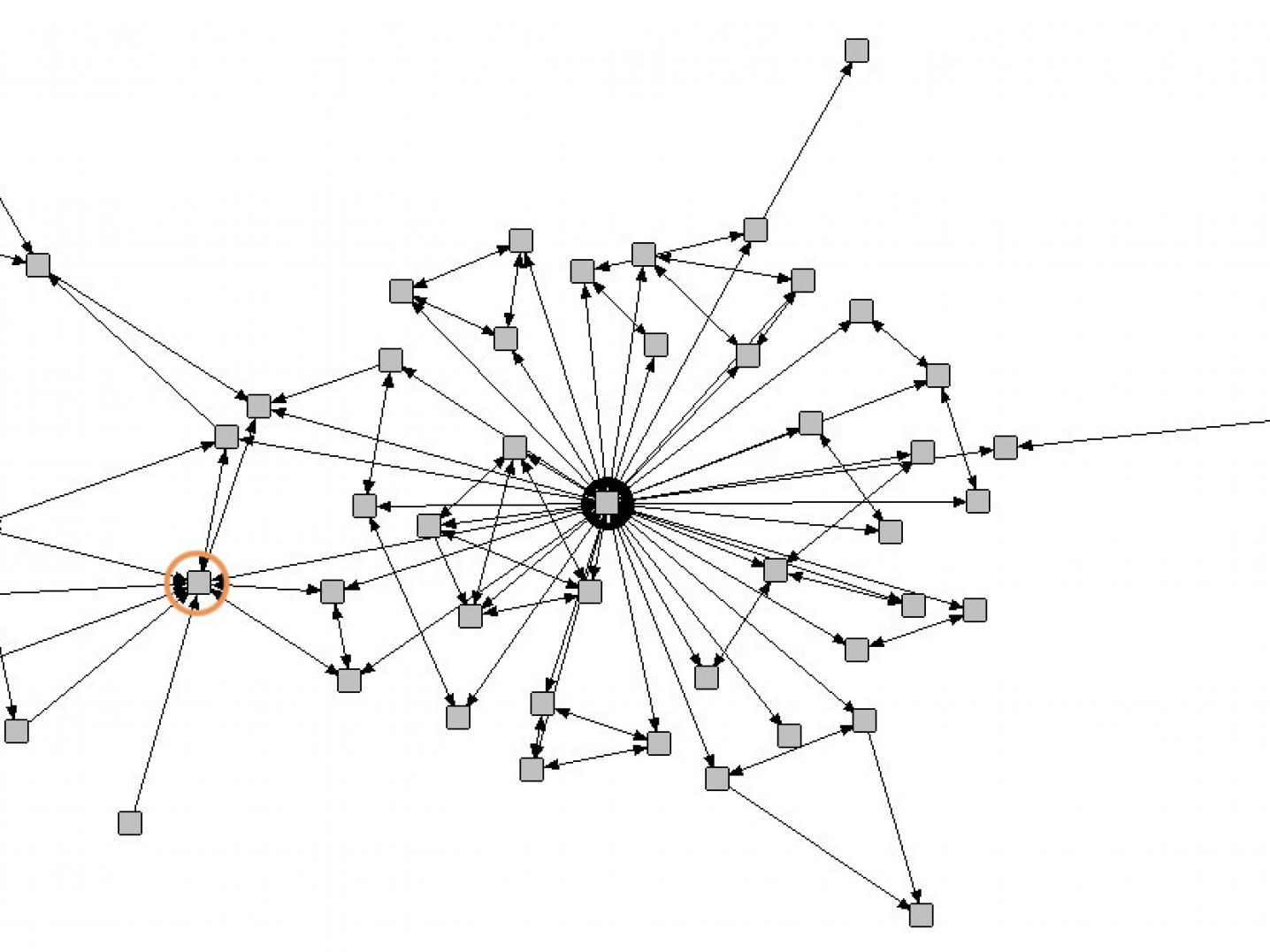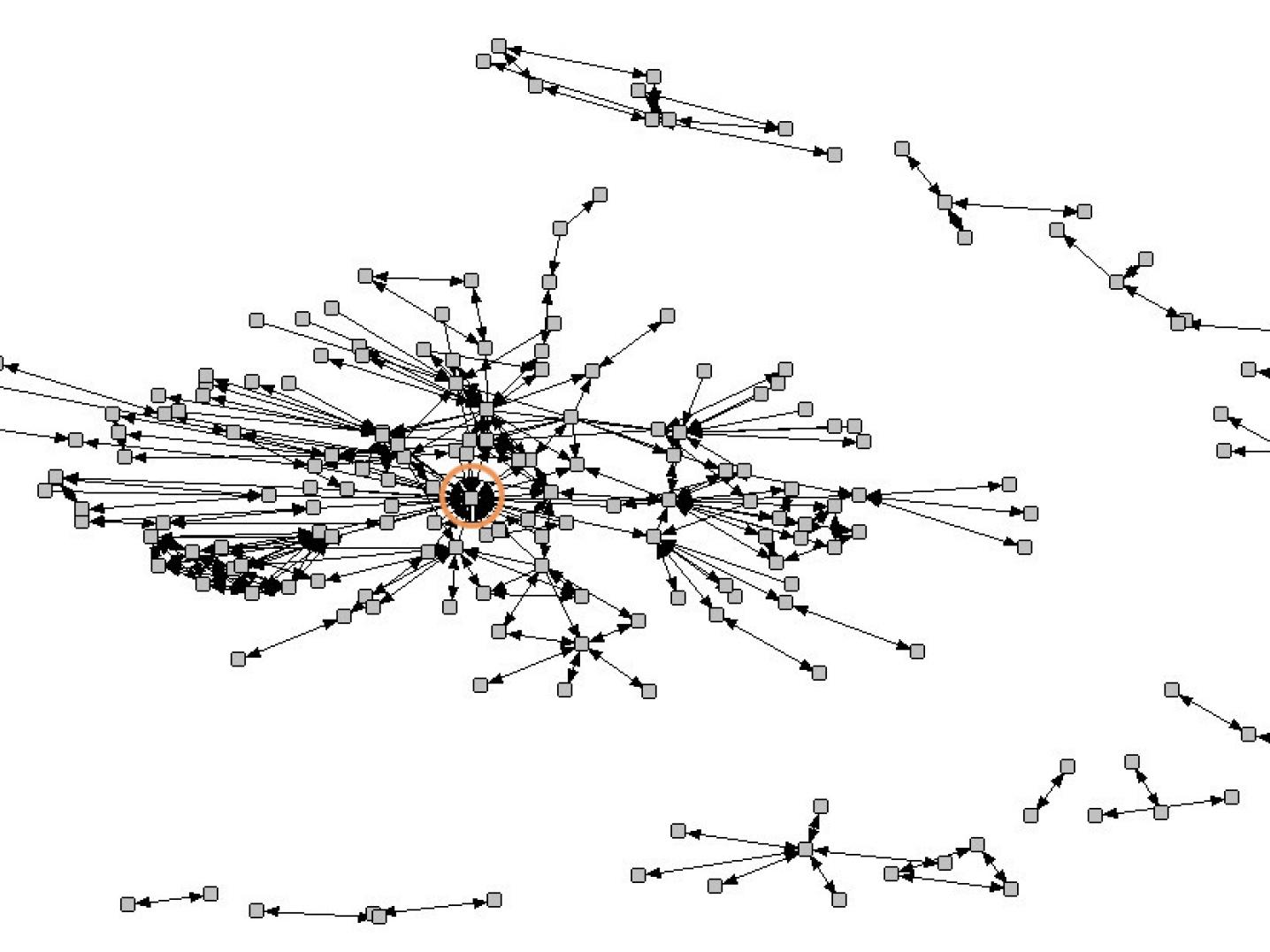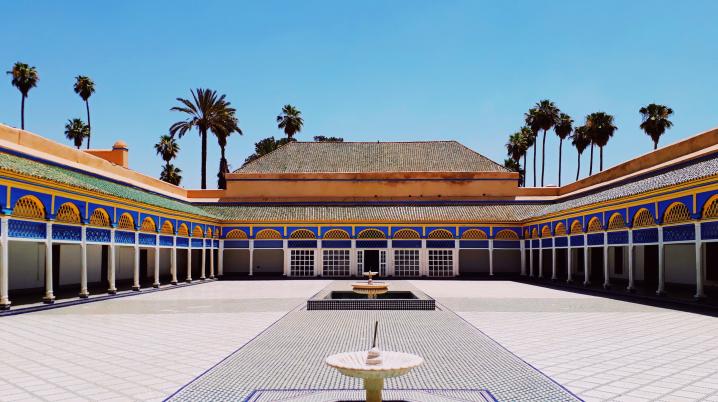In 2018 DutchCulture worked together with the research master Cultural Leadership, a new master programme of the University of Groningen in cooperation with Roma Tre University, and hired me, research trainee Djamila Boulil, to conduct a research into its position in the international cultural field. During a six-month research traineeship I mapped and analysed two cooperation networks of cultural organisations, artists and national governmental departments involved in the international cultural exchange between the Netherlands and Morocco and Turkey in the period 2016-2018.
For this I not only used the DutchCulture database but supplemented this with my own data collection, finding that the DutchCulture database already registered most of the international cultural exchange happening between the two countries. In the figure below the grey nodes represent those that came from the DutchCulture database and the other nodes are from desk research and a survey that was send out.
Dutch Moroccan cooperation network
The Netherlands and Morocco have been exchanging arts and culture for a long time, but starting 2017 for the Netherlands and 2018 for Morocco they are actively trying to connect to each other.
The 52 nodes in the network below (fig. 1) show that this cooperation is already blossoming, but that there is still a separation between the ministries and other (semi) governmental organisations responsible (on the left) and the artists and cultural organisations who form the large spiderweb on the right. DutchCulture’s position (marked) could possibly connect the two halves in the future.

Dutch Turkish cooperation network
The Netherlands and Turkey have a longstanding cultural cooperation, celebrating a 400 year international partnership in 2012. The network hereunder (figure 2.) is quite large with 208 nodes, most of which are in the larger cluster. DutchCulture (marked) is one of the organisations that is right in the middle of that cluster, usually a good sign in a social network. With this position DutchCulture could pull some of the smaller groups of artists and cultural organisations towards the larger group, especially because there are some there who have been actively working in the Netherlands or Turkey for a long time. But all and all, DutchCulture is doing well.

My conclusion is that, although DutchCulture has great knowledge of what is going on in the international cultural exchange between the Netherlands and Morocco and the Netherlands and Turkey, the two countries could benefit from some more input from the sector. Especially Moroccan and Turkish artists and cultural organisations sometimes fly under their radar.
Another recommendation is to attempt to be more physically present in Morocco and Turkey, as a foreign location seemed to be a key factor in having a central network position. In the Factsheet an overview is given of the full study.



